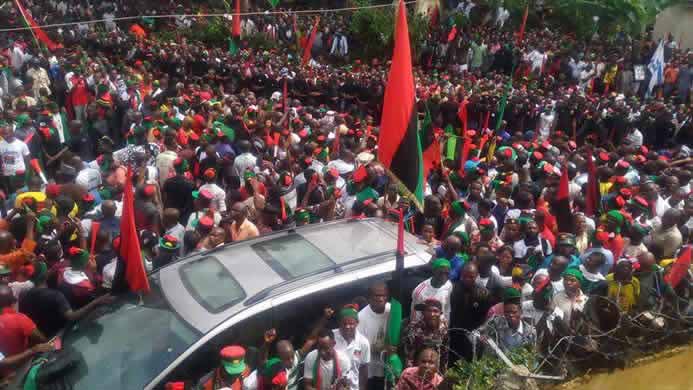The Ohanaeze Ndigbo has rejected the amnesty programme being sought for repentant Boko Haram insurgents through the bill recently presented to the senate by Senator Ibrahim Gaidam of Yobe state.
The apex pan-Igbo body said rather than Boko Haram members, members of the Indigenous People of Biafra (IPOB) and other pro-Biafra activists, who had pursued their agitation without violence, should be the ones granted amnesty.
President of Ohanaeze Ndigbo in Anambra, Chief Damian Okeke-Ogene, who stated this in an interview with Daily Sun, yesterday, urged the President Muhammadu Buhari-led administration and the Nigerian Senate, to bury the idea of granting amnesty to Boko Haram.
He accused the government of criminalising peaceful organisations, seeking self-actualisation, while putting modalities in place to canonize Boko Haram terrorists who had killed thousands of Nigerian citizens and wasted property worth billions of Naira.
“As far as Ohaneze and all people of good conscience are concerned, this is injustice;. It is unacceptable, uncalled for, and an invitation to anarchy,” Ogene said on the proposed Boko Haram rehabilitation agency.
Also, Chairman of Anambra South traditional rulers’ forum, and traditional ruler of Isseka Ancient Kingdom, Igwe Emmanuel Nnabuife, described the move as unacceptable.
Nnabuife said: “For most traditional rulers in Anambra State, the plan to reintegrate Boko Haram suspects into the Nigerian society, and probably make them members of the Nigerian Armed Forces, are unacceptable.
“If the news of granting amnesty to and recruiting Boko Haram prisoners into the Nigerian army was true, I will tell you that the move is very risky. It does not make sense when you bring your enemy to fight at the same side with you.
The monarch, therefore, tasked the Federal Government to find the most suitable way of rehabilitating all Nigerians affected by Boko Haram insurgency; not the terrorists themselves.
Also, Chairman, youth wing of Ohanaeze Ndigbo, Anambra State, said the idea was sending negative signals and advised Government to channel greater attention on its internally displaced citizens, especially thousands who were orphaned or widowed, including “those of them being ravaged by hunger and others who have no shelter and access to quality education.”
THE SUN, NIGERIA

